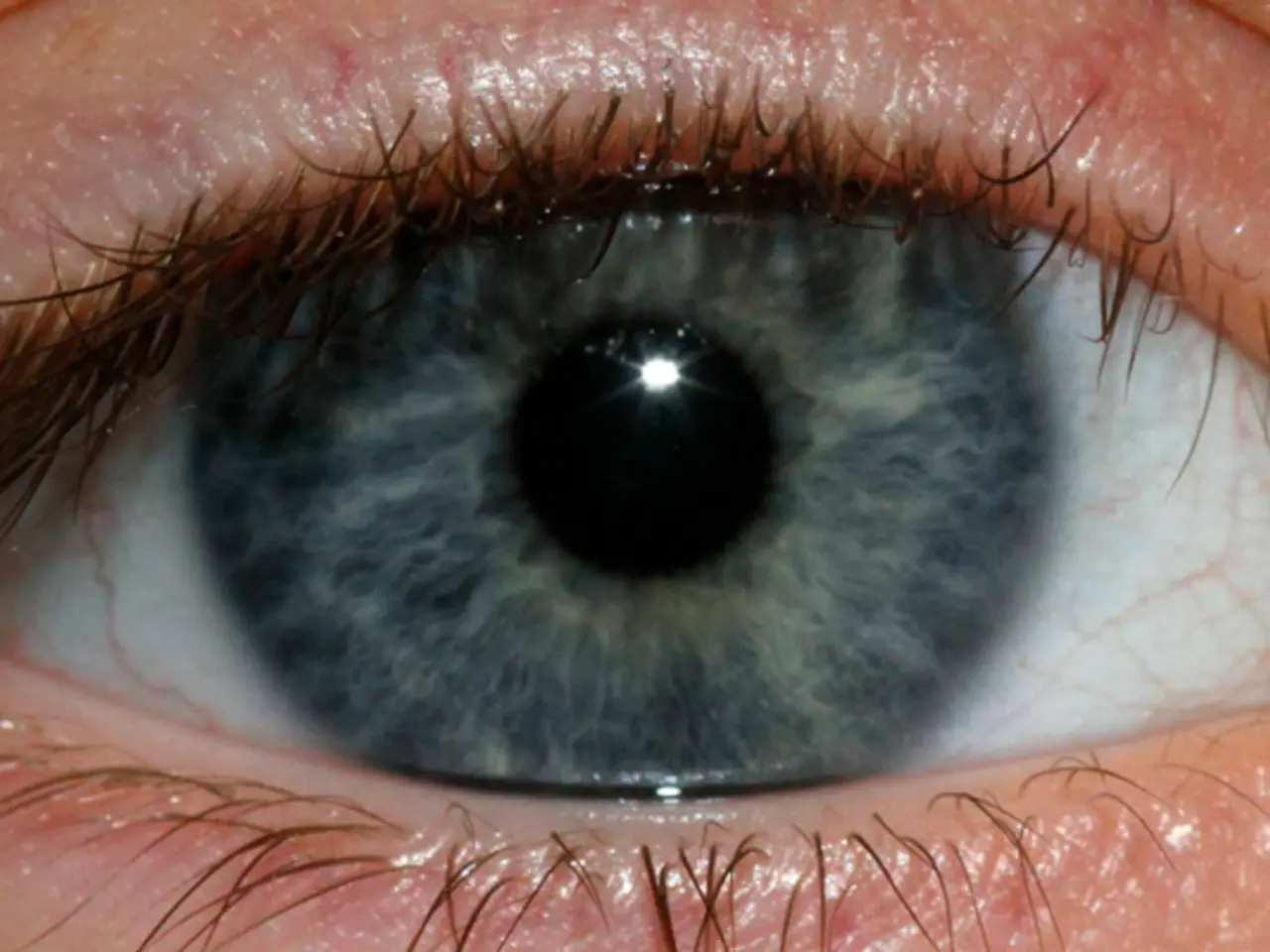Drought-stricken eyes during the heat of the season
In the sweltering heat of summer, dry eyes can become a common and uncomfortable condition for many. However, with a few simple adjustments to your lifestyle and home environment, you can effectively reduce dry eye discomfort and irritation.
Dry eyes, or Keratoconjunctivitis sicca, can be caused by various factors, including age, hormone changes, radiation therapy, and certain medications. For instance, individuals over 50 years old are more likely to experience diminished tear production. Additionally, hormone fluctuations and some treatments, such as radiation therapy, can contribute to dry eyes.
Allergens like pollen and dust can also irritate the eyes, causing them to become dry. Certain medications used for allergies, such as antihistamines, can also cause dry eyes as a side effect.
However, there are several effective home remedies and lifestyle changes that can help prevent dry eyes during the summer months.
- Staying well hydrated by drinking plenty of water is crucial to prevent dehydration, which can worsen dry eye symptoms.
- Using lubricating (artificial tear) eye drops can help keep eyes moist and relieve irritation caused by heat, dust, and pollen.
- Wearing UV-blocking sunglasses and hats outdoors can shield eyes from direct sunlight, dust, and wind, which can exacerbate dryness.
- Avoiding rubbing your eyes, especially if you have allergies, is essential, as this worsens irritation.
- Taking regular breaks from screens can help reduce eye strain and dryness caused by prolonged use of digital devices. Using anti-reflective or blue-light-blocking screen filters or glasses can also help.
- Using a humidifier indoors can maintain optimal humidity levels and counteract dryness caused by air conditioning.
- Maintaining good eyelid hygiene by gently washing eyelids and eyelashes with preservative-free cleansers can remove allergens and prevent gland blockage that reduces eye lubrication.
- Applying warm compresses multiple times a day can help unclog meibomian glands, improve oil secretion for the tear film, increase blood flow, and soothe dry, irritated eyes.
- Increasing omega-3 intake through diet or supplements can support tear quality and eye moisture.
If symptoms persist despite these measures, consulting an eye care professional is recommended, as prescription treatments or specialized therapies may be needed.
In addition to these strategies, it's essential to be mindful of factors that can contribute to dry eyes during the summer. A lack of humidity can cause the eyes to need to produce more tears to compensate. Indoor environments can also affect the level of moisture in a person's eyes, with factors like air conditioning and temperature changes playing a role.
The sun's rays can cause tears to evaporate more quickly, leading to dry eyes. Chlorine from swimming pools or smoke from campfires can irritate and dry a person's eyes. Windy environments and activities like bicycling without protective eyewear can also cause tears to evaporate quickly.
Ensuring adequate consumption of omega-3 fatty acids and vitamin D may help decrease symptoms of dry eyes. Medical conditions such as thyroid problems, rheumatoid arthritis, and diabetes can also cause dry eyes.
Symptoms of dry eyes can include eye discomfort, feeling as if there is grit in the eye, discomfort when wearing contact lenses, redness in the eyes, blurred vision, double vision, sensitivity to light, wind, or smoke, eye fatigue when reading, and watery eyes.
By implementing these simple changes and being aware of potential causes of dry eyes, you can enjoy a more comfortable and eye-friendly summer.
- Allergens like pollen can irritate the eyes and potentially contribute to dryness, making it necessary to use cleaning products such as preservative-free eyelid cleansers to remove allergens.
- Incorporating health-and-wellness practices like staying hydrated, using lubricating eye drops, and maintaining good eyelid hygiene can help alleviate dry eye symptoms caused by factors such as the dry summer heat and allergens like pollen.
- Mental health is also important in managing dry eye discomfort, and taking regular breaks from screens or engaging in stress-reducing activities can help minimize eye strain and dryness associated with prolonged digital device use.




